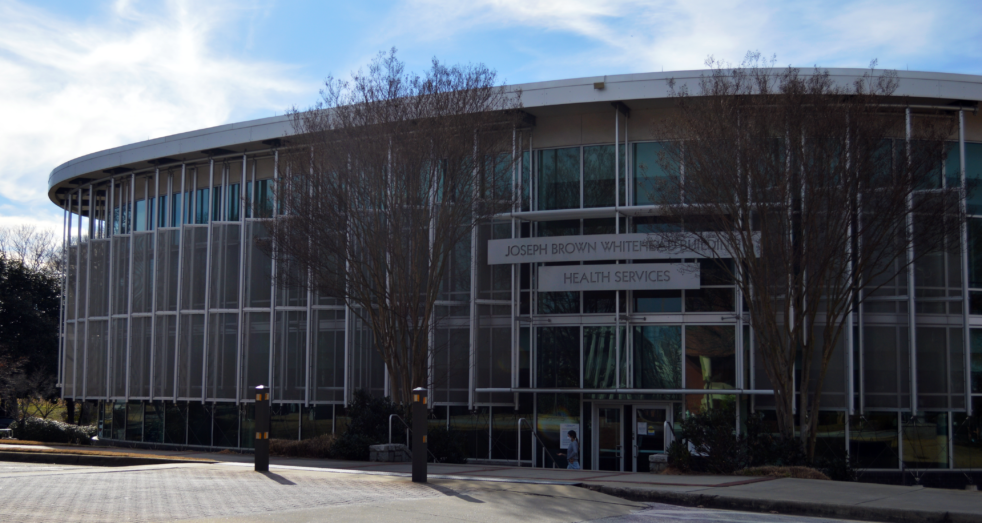On Jan. 24, all students received an email from Vice President Luoluo Hong about an individual at Tech having been diagnosed with tuberculosis (TB). With the risk that this poses to the rest of the Tech community, Stamps Health Services has partnered with the Gwinnett County Health Department (GCHD) to address its impact on campus.
The GCHD provided information in the email and on a public forum with Stamps about the symptoms, transmission and types of TB infection.
According to the CDC, TB is caused by Mycobacterium tuberculosis which can attack any part of the human body, although the disease is known for infecting the lungs. An active TB infection can cause a myriad of symptoms which depend on the part of the body that is infected, and infection in the lungs or throat can allow airborne transmission of the TB bacteria to others.
People can also have a latent TB infection where the bacteria is in the body, but it is not making one sick or contagious.
While TB infections are uncommon in the United States, Dr. Ben Holton, Senior Director of Stamps Health Services, noted that this was not the first time someone at Tech has had TB.
“We have [students] who test positive for latent TB because TB is endemic in the countries from which they come,” Holton said about testing international students upon their arrival at Tech. He also said that latent TB “is more of an inconvenience rather than a true threat” because it causes no symptoms or transmission and is easy to treat.
Holton also mentioned that active TB cases occur on Tech’s campus every few years, although this instance has a larger impact than a previous case a few years ago.
Students that came in close contact with the individual were notified of their possible exposure and were required to get tested for TB. GCHD determined that the individual was contagious while at Tech from Aug. 23 to Sept. 27 of last year and may have exposed their close contacts during this time.
The department also identified situations for possible exposures and Tech provided information pertaining to those circumstances, such as the classes and public spaces where the individual frequented. Altogether, 430 people were contacted to come in for TB testing.
TB screenings were held at Stamps Health Center for those contacts, with the GCHD providing the screening staff, and tests are being processed at the State Health Department labs free of charge.
GCHD is also managing follow-up for those who were notified and got tested. Holton said that Stamps will work with the GCHD for those who test positive for either type of TB.
Justin Thurber, BMED ’23, was contacted to come in for TB screening. He says that he is not sure where he got exposed, but he thinks it might have been during a class with the individual. Thurber got a QuantiFERON blood test done last week at Stamps, which he described as an easy process.
“I do worry about testing positive,” Thurber said. “If I were to be positive there would be a lot of people that I could have potentially given it to [and] I would never want to infect someone around me,” he said, adding that he is anxious to receive his screening results.
Treatment for TB depends on the type, with latent TB having a shorter and more lax treatment schedule.
Active TB cases can have year-long treatment plans and those patients must report to the GCHD every day to take their medication under the guidance of their health professionals.
Treatment of active TB, including rigorously following medication instructions given by doctors, is essential to ensuring that cases do not lead to serious complication, or in some cases, death.
If someone has latent TB, they can decline treatment and risk developing an active form later; those with active TB are required to be treated under Georgia law.
Alternatively, they can opt to receive treatment for the disease, which involves receiving prophylactic antibody and antibiotic medications similar to those taken by active TB patients over a shorter period of time. These treatments typically last three to four months, but they can prevent the development of active TB cases, which can be both painful and life threatening. Although students may be frightened by the TB case, Holton reiterated that TB is treatable and its risk to campus is reduced by the joint actions of Stamps Health Services and the GCHD.
Luckily, TB is significantly harder to transmit than other diseases, such as COVID-19, so its risk to students is significantly minimized as a result.
Students can direct any questions they have to Stamps Health Services and can request screening for TB if they believe they may have been exposed and have any symptoms.
